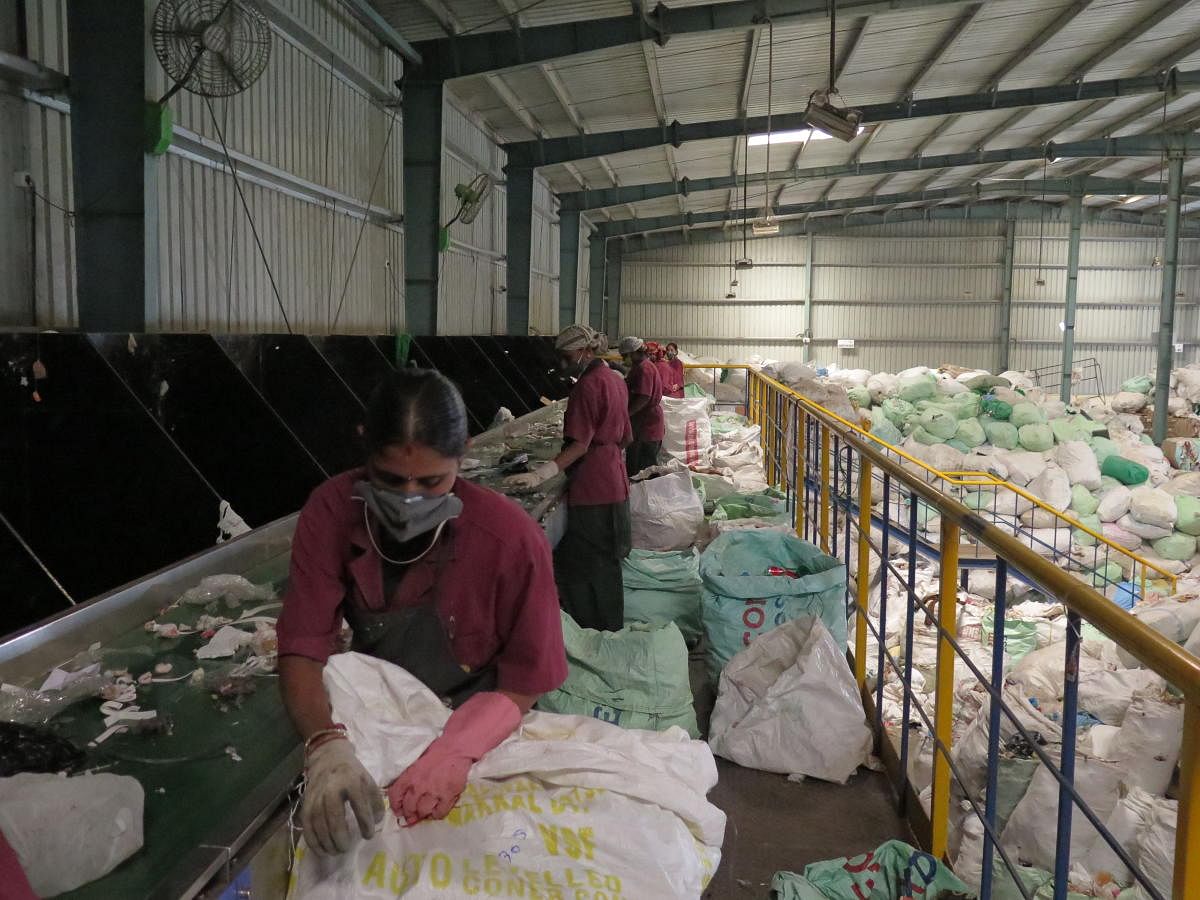
With the city producing over 4,500 tons of garbage a day, a local waste-processing firm says it has proved the old dictum — one’s waste can be another’s treasure.
“Bengaluru has a big problem of trash, but what most people don’t realise is the segregation and recycling of trash can be sustainable ventures which can not only solve the city’s massive garbage problem but also help in the social mobility of the city’s rag-pickers, who are unsung heroes of this story. Because it is they who are unwittingly formalising the segregation of garbage in the city,” said Preet Prakash Khatri, the manager at Saahas Zero Waste Management Private Limited’s Material Recovery Facility (MRF) in Jigani.
While the entire Saahas network collects nearly 45 tons of waste from the city a day for segregation, processing and transport to recycling companies elsewhere, the organisation’s MRF in Jigani handles dry-waste from nearly all the IT parks in the city and other multinational corporations.
“Nearly 70% of our dry-waste collection is from IT companies, and the rest is from apartments, gated communities and schools,” Khatri said, adding that if 10 tons of garbage is collected everyday, seven tons are collected as part of the zero-waste programme, which aims for maximum recyclability.
Trash is procured from bulk waste generators through a service-free model or from informal waste workers who are paid for the waste they collect. The workers are trained to become entrepreneurs. The segregated waste is then sold to recycling companies who can expect to turn a profit through recycling.
“Through this way, waste segregation is brought in the ambit of a proper business model,” Khatri said.
N S Ramakanth, a founding member of the BBMP’s Solid Waste Management Round Table praised the role of private organisations such as Saahas, helping to tackle the waste problem. But he cautioned that private enterprises alone cannot solve it.
“Private companies do not have the sanction to carry out door-to-door collection unless they are properly organised,” he said.
Ramakanth nevertheless pointed out the successes of the round table when it came to trash collection during events, especially at the Indian Premier League cricket matches, whose organisers had initially refused to cooperate, claiming it was impossible to make a crowd of 60,000 people segregate their waste at the stadium.
“We did not take no for an answer, and backed by the BBMP officials, we are seeing to it that they are maintaining discipline.”
In fact, local BBMP involvement is a must if segregated garbage collection is to work in the city, Ramakanth added.